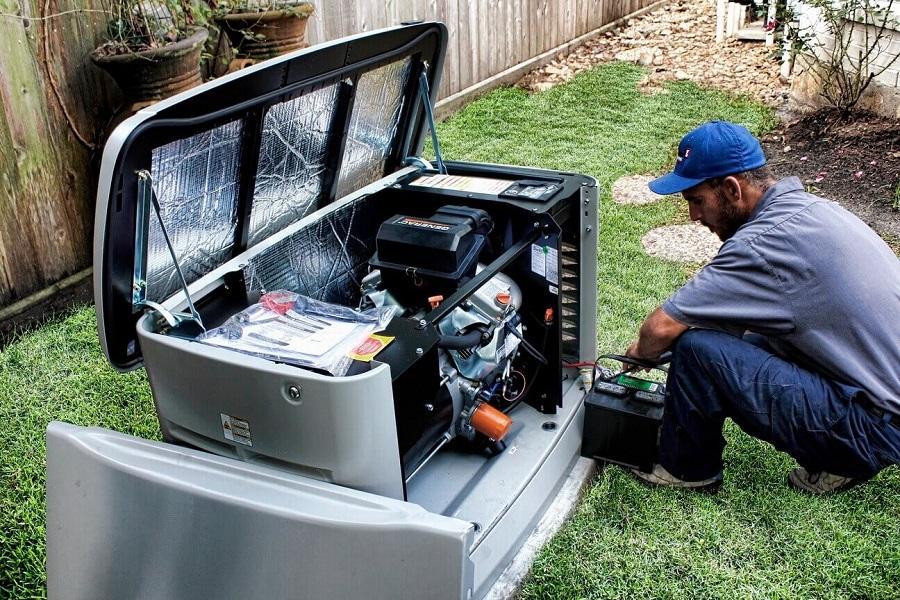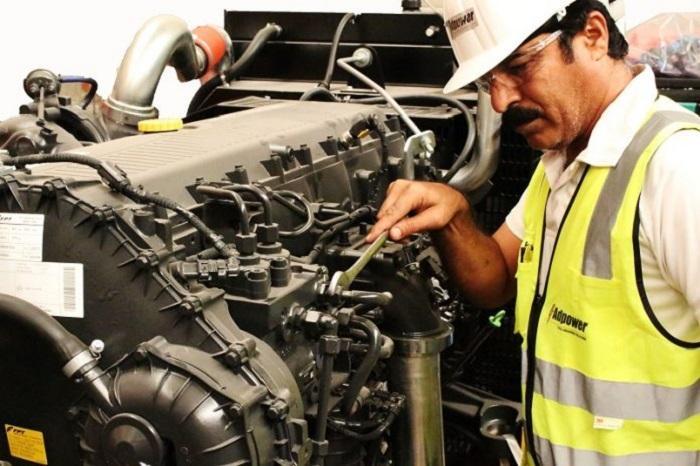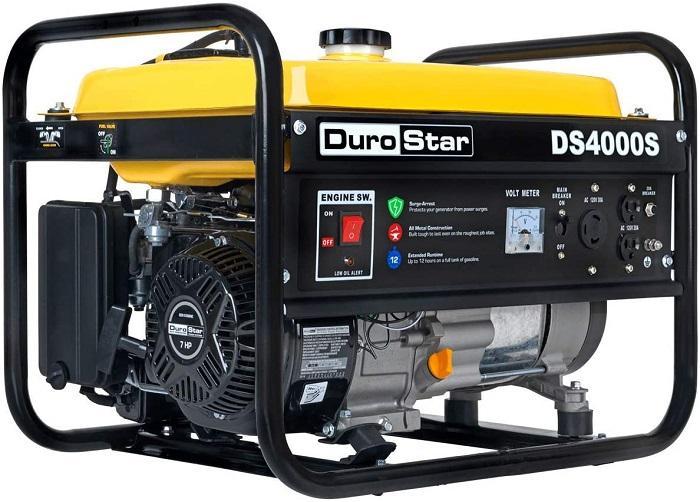For most of us, as long as a piece of equipment is working, everything is fine, and right at the moment it is not working, we seem to notice for troubleshooting. Generators are one of the electrical tools that are always expected to work without any defects. But we should remember that generators will not last without some regular maintenance. In this article, we intend to introduce some important tips for proper and regular generator maintenance. Linquip has gathered the most useful information on this topic for you so that you can have your generator for a longer lifetime. Read on to find out more about what can save easily your generator from serious damage.
4 Important Tips for Generator Maintenance
In this section, we are going to elaborate on some of the most essential tips and points which assist you to maintain your generator properly and prevent some of the serious damages and issues that can be easily caused by negligence in maintenance and can be eliminated with a routine act of preservation. In the following section, you will face a list of procedures that need to be accomplished regularly. Keep in mind that in addition to the following tips, exercising the power system weekly or monthly will assure you that the generator set, its controlling system, and transfer switches are working properly and without any defects. Due to the high durability of generators especially diesel ones, most maintenance listed in the following is preventive which consists of general inspection, lubrication service, relevant cooling system service, and fuel system service.
Notice That…
It is better to have a schedule for the maintenance and services based on the circumstances the generator is used. If the generator set is used frequently or is exposed to severe and extreme operating conditions such as using a generator as prime power supplier and for continuous duty, in extreme environmental temperatures, or the exposure and proximity to air humidity, dust, sand, or other air contaminants.
If your generator set is exposed to any of these conditions, the recommended service timetable and intervals should be shortened accordingly. The best way to keep track of generator maintenance intervals is to use a running-time meter on your generator set.
-
General Inspection
As the generator is working, you have to be on alert for mechanical problems that possibly create hazardous conditions. You have to inspect some areas such as the exhaust system, fuel system, DC electrical system, and control system. These inspections should be performed frequently to maintain the generator in safe and reliable operation.
-
Exhaust System
When the generator is operating, check the whole exhaust system including the manifold, muffler, and pipe. You should inspect the system for leaks at all connections in welds, gaskets, and other joints. Another thing needing to be checked is that the exhaust pipes are not heating the peripheral areas more than usual. If you see any leakage, you have to repair it immediately. If the smoke amount is excessive, it shows possible performance and air quality issues that need immediate repair.
-
Fuel System
Another area that needs to be generally and regularly inspected is the fuel system. You need to check the supply lines, return lines, and filters. Make sure the lines are not rubbing against anything as it could cause eventual failure.
-
DC electrical system
You should check the terminals on the starting batteries. It will make sure that the connections are clean and tight. Loose or corroded connections cause more resistance which leads to hinder starting.
-
Control system
check the control system regularly and properly to make sure it is logging data properly during engine operation.
-
Lubrication Service
Inspect the level of the engine oil as the engine is not operating based on the timetable you have set for your generator maintenance. You have to shut off the engine and wait approximately ten min for accurate readings on the engine’s dip-stick. Shutting off the engine allows the oil in the upper portions of the engine to drain back into the crankcase. It is better to follow the engine manufacturer’s recommendations for oil classification and viscosity. You need to keep the oil level to the full mark on the dipstick. To do so you should add the same quality and brand of oil whenever the generator requires.
Besides, you have to change the oil and filters at the regular intervals recommended for your generator. If you need to drain the oil and replace the oil filter, it is better to check with the engine manufacturer for the procedures because the used oil and filters must be disposed of properly to avoid environmental serious damage.
-
Cooling system service
To check the coolant level, you have to shut down the generator. You need to inspect the coolant level daily. To inspect the coolant level, obviously, after allowing the engine to cool, you have to remove the radiator cap. If it is necessary, add coolant until the level is about 3/4 in. below the radiator cap’s lower sealing surface.
Diesel engines that are used heavily and frequently require a balanced coolant mixture of water, antifreeze, and coolant additives. Use the solution recommended by the engine manufacturer for cooling system services.
Another thing that needs to be checked is the exterior of the radiator for obstructions. For better efficiency, you need to remove all dirt or contamination with a soft brush or cloth. While removing dirt and contamination, be careful to avoid damaging the fins. to clean the radiator, you can also use a low-pressure compressed air machine or a stream of water in the opposite direction of airflow.
-
Fuel system service
As Generators are often subject to contamination and deterioration, the regular generator set exercise is needed to use up stored fuel before it degrades. In addition to other services recommended for the fuel system by the engine manufacturer, the fuel filters should be drained weekly. It is possible that water vapor accumulates and condenses in the fuel tank. So, it also must be periodically drained from the tank along with any sediment present. Bacterial growth in generator fuel may be a problem in warm weather. Take advice from the manufacturer or dealer for recommendations on treating stored fuel with a biocide. If the generator has not used the fuel or the fuel is not replenished in three to six months, Regular testing and fuel polishing may be required.
Conclusion
Generator maintenance was the main topic of this article and we tried to meet the most important tips. Linquip has gathered the most useful information on this topic for you so that you can enjoy your generator for a longer lifetime. Now that you have read this article, it is easier for you to find out more about what can save your generator from serious damage. We suggested four important stages of inspections including general inspection, lubricant services, fuel system services, and coolant system services to maintain your generator safely.
If you have any other questions about the topic, Linquip is ready to answer them. All you need is to sign up. Besides, if you have any experience using a generator and know more about its generator maintenance procedures, we will be glad that you share it with us in the comments. Hope you enjoyed this article.
Buy Equipment or Ask for a Service
By using Linquip RFQ Service, you can expect to receive quotations from various suppliers across multiple industries and regions.
Click Here to Request a Quotation From Suppliers and Service Providers
Read More on Linquip
- 3-phase generator: a brief review of everything you need to know
- What Is a Generator? A Comprehensive Explanation of Working Principles, Types, and Components
- Type of Generator: Learn the Basics, Get the Most Out f it!
- Best Portable Generators: Everything You Need to Know
- Parts of DC Generator: Explanation of Parts, Working, Types, Advantages & Disadvantages
- Parts of Generator: a Simple, Yet Useful Guide
- Single-phase generators; 5 essential steps to know single-phase generators
- How Long to Wait After Using Ozone Generator
- How to Use Ozone Generator in Home
- Synchronization of Generators: Step-by-Step Guide + PDF
- Generator Efficiency
- How To Store Your Generator Safely? (Clear Guide)
- How To Quiet A Generator? (Comprehensive Guide)
- How Do I Choose The Right Generator For My Needs?
- How to Calculate The Fuel Consumption of the Generator?
- How Do I Maintain The Battery of My Generator?
- How Long Can a Generator Run Continuously?
- How to Use a Portable Generator During a Power Outage?
- Why Do We Use AC Instead of DC? Exploring the Advantages of Alternating Current
- Main Benefits of Generators for Disaster Response
- How To Clean Up Generator Power? (Clear Guide)
- What Are The Benefits of Generators?
- Do Generators Work In A Flood? (What to Do If Your Generator Is Flooded?)
- Can A Home With Solar Panels Use A Generator?
- Converting Your Generator To Propane: Step By Step (Clear Guide)






